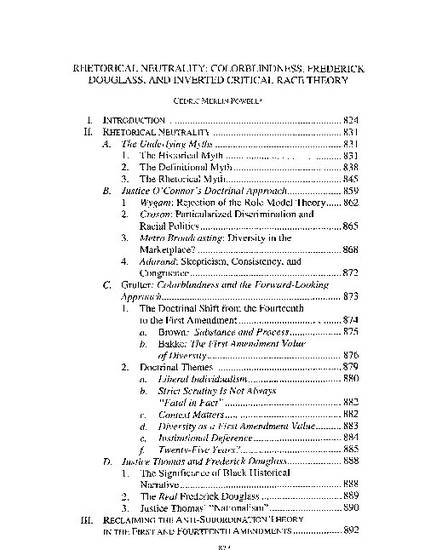
Article
Rhetorical Neutrality: Colorblindness, Frederick Douglass, and Inverted Critical Race Theory
Cleveland State Law Review
Publication Date
1-1-2008
Disciplines
Abstract
Rhetorical Neutrality refers to the middle ground approach adopted by the Supreme Court in its race jurisprudence. This Article examines rhetorical neutrality as evinced in the narratives espoused in the opinions of Justices O'Connor and Thomas. In Grutter, both Justices employ neutral approaches, rooted in colorblindness. However, the underlying rhetoric, or how their reasoning is expressed in their respective opinions, is strikingly distinct. Neither Justice advances a remedial approach; both Justices start with the premise that race is inherently suspect, but their approaches diverge because they view colorblind neutrality in fundamentally distinct ways.
Citation Information
Cedric Merlin Powell. "Rhetorical Neutrality: Colorblindness, Frederick Douglass, and Inverted Critical Race Theory" (2008) p. 823 Available at: http://works.bepress.com/cedric_powell/9/
